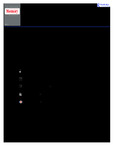Pre-testing Effects Are Target-Specific and Are Not Driven by a Generalised State of Curiosity
| dc.contributor.author | Hollins, Timothy | |
| dc.contributor.author | Seabrooke, T | |
| dc.contributor.author | Inkster, A | |
| dc.contributor.author | Wills, Andy | |
| dc.contributor.author | Mitchell, Chris | |
| dc.date.accessioned | 2022-11-24T15:25:32Z | |
| dc.date.issued | 2022-12-07 | |
| dc.identifier.issn | 1464-0686 | |
| dc.identifier.issn | 1464-0686 | |
| dc.identifier.uri | http://hdl.handle.net/10026.1/20003 | |
| dc.description.abstract |
Guessing an answer to an unfamiliar question prior to seeing the answer leads to better memory than studying alone (the pre-testing effect), which some theories attribute to increased curiosity. A similar effect occurs in general knowledge learning: people are more likely to recall information that they were initially curious to learn. Gruber and Ranganath [(2019). How curiosity enhances hippocampus-dependent memory: The prediction, appraisal, curiosity, and exploration (PACE) framework. Trends in Cognitive Sciences, 23(12), 1014–1025] argued that unanswered questions can cause a state of curiosity during which encoding is enhanced for the missing answer, but also for incidental information presented at the time. If pre-testing similarly induces curiosity, then it too should produce better memory for incidental information. We tested this idea in three experiments that varied the order, nature and timing of the incidental material presented within a pre-testing context. All three experiments demonstrated a reliable pre-testing effect for the targets, but no benefit for the incidental material presented before the target. This pattern suggests that the pre-testing effect is highly specific and is not consistent with a generalised state of curiosity. | |
| dc.format.extent | 282-296 | |
| dc.format.medium | Print-Electronic | |
| dc.language | en | |
| dc.language.iso | en | |
| dc.publisher | Taylor and Francis Group | |
| dc.subject | Pre-testing | |
| dc.subject | curiosity | |
| dc.subject | episodic memory | |
| dc.subject | learning | |
| dc.title | Pre-testing Effects Are Target-Specific and Are Not Driven by a Generalised State of Curiosity | |
| dc.type | journal-article | |
| dc.type | Journal Article | |
| dc.type | Research Support, Non-U.S. Gov't | |
| plymouth.author-url | https://www.webofscience.com/api/gateway?GWVersion=2&SrcApp=PARTNER_APP&SrcAuth=LinksAMR&KeyUT=WOS:000893845300001&DestLinkType=FullRecord&DestApp=ALL_WOS&UsrCustomerID=11bb513d99f797142bcfeffcc58ea008 | |
| plymouth.issue | 2 | |
| plymouth.volume | 31 | |
| plymouth.publication-status | Published | |
| plymouth.journal | Memory | |
| dc.identifier.doi | 10.1080/09658211.2022.2153141 | |
| plymouth.organisational-group | /Plymouth | |
| plymouth.organisational-group | /Plymouth/Faculty of Health | |
| plymouth.organisational-group | /Plymouth/REF 2021 Researchers by UoA | |
| plymouth.organisational-group | /Plymouth/REF 2021 Researchers by UoA/UoA04 Psychology, Psychiatry and Neuroscience | |
| plymouth.organisational-group | /Plymouth/REF 2021 Researchers by UoA/UoA04 Psychology, Psychiatry and Neuroscience/UoA04 REF peer reviewers | |
| plymouth.organisational-group | /Plymouth/Research Groups | |
| plymouth.organisational-group | /Plymouth/Research Groups/Centre for Brain, Cognition and Behaviour (CBCB) | |
| plymouth.organisational-group | /Plymouth/Research Groups/Centre for Brain, Cognition and Behaviour (CBCB)/Cognition | |
| plymouth.organisational-group | /Plymouth/Users by role | |
| plymouth.organisational-group | /Plymouth/Users by role/Researchers in ResearchFish submission | |
| dc.publisher.place | England | |
| dcterms.dateAccepted | 2022-11-24 | |
| dc.rights.embargodate | 2022-12-16 | |
| dc.identifier.eissn | 1464-0686 | |
| dc.rights.embargoperiod | ||
| rioxxterms.versionofrecord | 10.1080/09658211.2022.2153141 | |
| rioxxterms.licenseref.uri | http://www.rioxx.net/licenses/all-rights-reserved | |
| rioxxterms.type | Journal Article/Review | |
| plymouth.funder | Learning from total failure: why do impossible tests boost learning?::ESRC |


